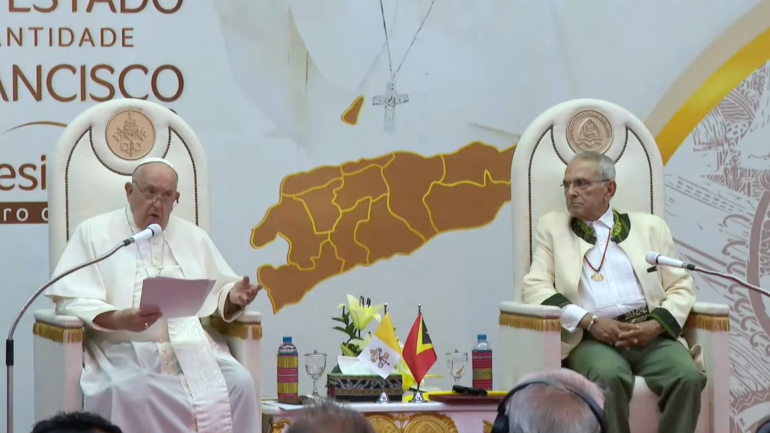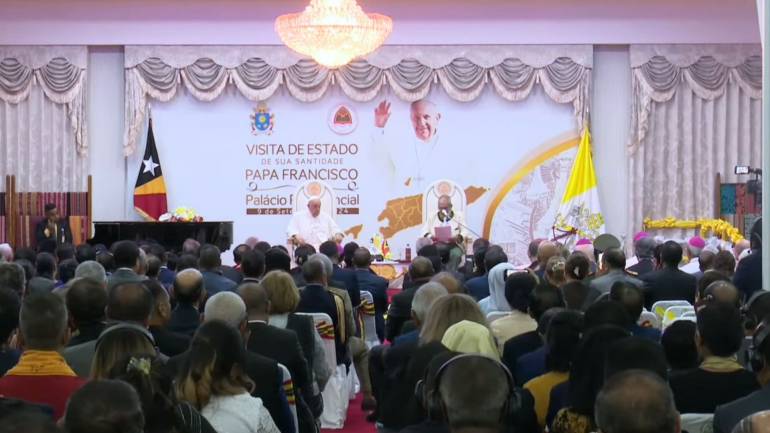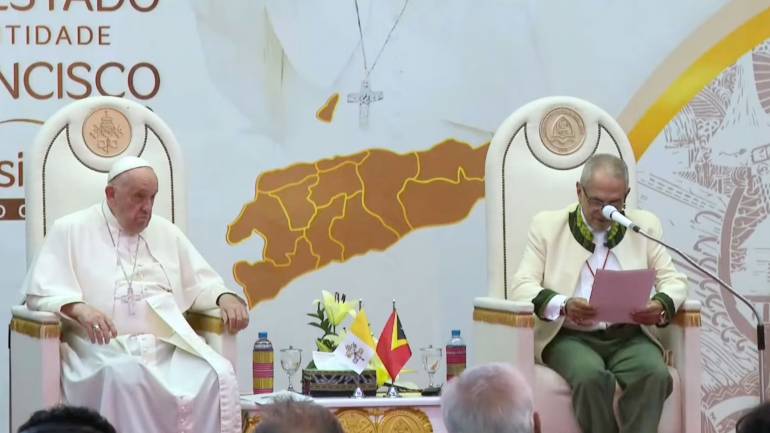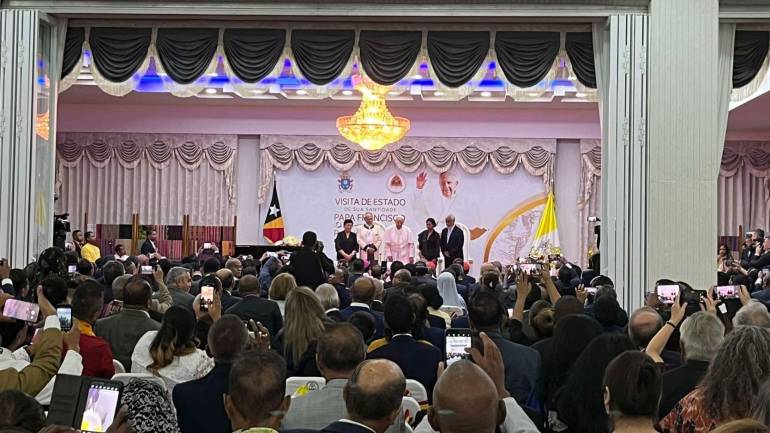Faith in action: Pope Francis calls for bold steps to combat poverty in Timor-Leste

Pope Francis delivered a powerful address at the Presidential Palace, Dili, Timor Leste, urging the nation to harness its deep-rooted Catholic faith to tackle pressing challenges such as poverty and inequality on September 9.
The pontiff’s speech, marking the beginning of his Apostolic Journey to the region, emphasized the transformative power of faith in shaping the future of Timor-Leste, while urging leaders to focus on development that uplifts the poor and marginalized.
Addressing Timor-Leste’s leadership, civil society, and the diplomatic corps, Pope Francis reflected on the country’s difficult past, particularly its struggle for independence from 1975 to 2002.
He praised the resilience of the Timorese people, noting how their faith sustained them through years of suffering.
“Your rootedness in the Catholic faith has greatly helped in reaching these important goals,” he remarked, invoking the words of Saint John Paul II, who visited the country in 1989.
The Pope also addressed pressing social issues, including rural poverty and the need for sustainable development.
“I think too of the poverty present in so many rural areas, and the subsequent need for collective and wide-ranging action,” he said.
He stressed that efforts must involve leaders from all sectors—civil, religious, and social—to create viable solutions to stem emigration and provide meaningful employment.
Pope Francis called for better management of Timor-Leste's natural resources, particularly its oil and gas reserves, urging leaders to focus on the common good.
“It is essential to prepare properly and provide appropriate training to those who will be called upon to be the country’s leaders in the not-too-distant future,” he stated.
This, he said, would ensure that the wealth generated is used for the benefit of all, particularly the most vulnerable.
Throughout his speech, Pope Francis returned to the theme of faith, urging Timorese leaders and citizens to let their faith guide their decisions.
“May the faith, which has enlightened and sustained you in the past, continue to inspire your present and future: Que a vossa fé seja a vossa cultura!” he proclaimed, emphasizing that faith should shape the nation's values and choices.
The Pope also expressed concern about the social issues affecting the country’s youth, including the rise of gang violence and excessive alcohol use.
He called on society to protect the dignity of young people and ensure they have access to peaceful and healthy childhoods.
Pope Francis concluded by highlighting the role of the Church in fostering a just society, offering its social doctrine as a guide for development that prioritizes the common good and combats inequality.
“The Church offers her social doctrine as the foundation for such a formative process,” he said, underscoring the need for a more equitable future for all Timorese.
The speech comes at a critical time for Timor-Leste as it continues to build its economy and address the lingering effects of poverty.
According to the most recent data (2020) from the Asian Development Bank (ADB), approximately 41.8% of Timor-Leste's population lived below the national poverty line, a slight increase from 41.2% in 2014.
This rise reflects ongoing economic challenges, particularly in rural areas, and has been further aggravated by the impact of the COVID-19 pandemic.
The World Bank’s Timor-Leste Overview reported a Gini Index of 28.7 in 2019, suggesting relatively moderate income inequality by global standards.
However, the data highlights significant disparities between urban and rural regions, where poverty and access to resources remain uneven.
Pope Francis’ visit has reignited hope and faith in the potential for a brighter, more just future, rooted in the values of the Gospel.
Radio Veritas Asia (RVA), a media platform of the Catholic Church, aims to share Christ. RVA started in 1969 as a continental Catholic radio station to serve Asian countries in their respective local language, thus earning the tag “the Voice of Asian Christianity.” Responding to the emerging context, RVA embraced media platforms to connect with the global Asian audience via its 21 language websites and various social media platforms.















